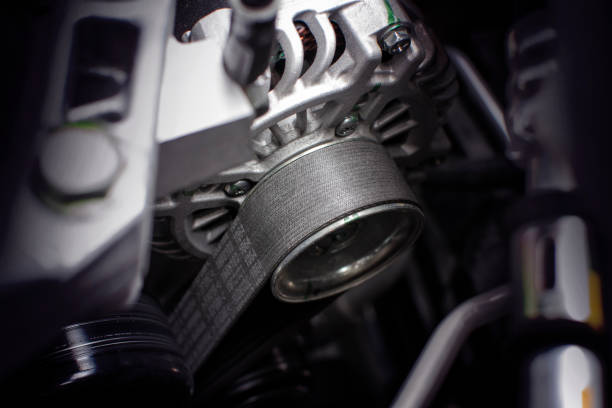June 23, 2024
Can a car run without an alternator?
car can run without an alternator, but only for a limited period. Here’s how it works and the limitations:
- Battery Power: The alternator’s primary function is to recharge the car’s battery and power the electrical system while the engine is running. Without an alternator, the car will rely solely on the battery for power.
- Driving Duration: Without the alternator, the battery will eventually drain because it’s not being recharged. The amount of time the car can run depends on the battery’s capacity and the electrical load (e.g., headlights, air conditioning, radio). Generally, a fully charged battery might last for 30 minutes to a few hours.
- Warning Signs: Before the battery dies completely, you may notice dimming headlights, malfunctioning electronic accessories, and warning lights on the dashboard.
- Engine Shutdown: Once the battery is depleted, the car will no longer have enough power to keep the engine running or operate essential systems like the fuel pump and ignition system. This will cause the engine to stall and the car to stop.
In conclusion, while a car can run without an alternator, it is not practical or safe to drive for an extended period without one. If your alternator fails, it’s essential to get it repaired or replaced as soon as possible to avoid being stranded and to ensure the vehicle operates properly
How long can your car run with a bad alternator?
- Battery Condition: A fully charged, healthy battery can provide power for a short period, usually ranging from 30 minutes to a few hours, depending on the load.
- Electrical Load: If you minimize the use of electrical components (like headlights, radio, air conditioning, etc.), the battery will last longer. Turning off as many electrical systems as possible can extend the time the car can run.
- Driving Conditions: Daytime driving, which doesn’t require headlights, can extend the time the car runs. Additionally, city driving with frequent stops can deplete the battery faster than highway driving.
- Battery Size and Capacity: Larger batteries with higher capacities can last longer. Some high-capacity batteries might allow the car to run for several hours.
- Engine Type: Older cars with fewer electronic systems might last longer than modern cars with multiple electronic systems.
If you suspect your alternator is failing, it’s best to address the issue as soon as possible to avoid being stranded.
Can I drive my car if the alternator is not working?
- Battery Drain: Without the alternator charging it, the battery will eventually drain. How long the car will run depends on the battery’s condition and the electrical load. You may only have a short period of driving before the battery dies, leaving you stranded.
- Loss of Electrical Power: As the battery depletes, you may start losing functionality of critical electrical components, such as the headlights, dashboard lights, power steering, and even the engine control unit. This can make driving unsafe.
- Damage to Battery: Continuously relying on the battery without the alternator can damage the battery, leading to further expenses for replacement.
- Potential Engine Stall: Once the battery is drained, the car will stall, and you won’t be able to restart it without recharging or replacing the battery.
Temporary Solutions:
- Fully Charge the Battery: Before driving, ensure the battery is fully charged to maximize the time you have.
- Minimize Electrical Load: Turn off non-essential electrical components (radio, air conditioning, etc.) to reduce battery drain.
- Short Distance Drives: Limit driving to short distances where you can safely get help or reach a mechanic.
Ultimately, it is best to address the alternator issue promptly. If you’re already on the road and suspect the alternator has failed, head directly to the nearest service station or mechanic to avoid getting stranded.

